| There is a HELL of a lot going on in this MV and some of it is really not all that slick. There's a ton of good stuff going on, but there's a lot that I'm disappointed in as well. I keep waffling back and forth. Junsu's voice is unquestionably one of the best in Kpop, but it's usage here doesn't make it obvious... And while there's a lot of gorgeous symbolism in the visuals, the way they're strung together without exposition leaves me less than impressed... Arguably, it's a flashy, but poignant critique of the whole nature beneath Idol culture, one I personally find unduly antagonistic. But in order to critique it fairly, I think I should start by explaining what on earth is happening in it: |
The first image we receive is 'XIA' in white letters on a black background, putting the artist at the center of the story. The name is then revealed to be displayed over a stormy night, signifying a character enveloped in adversity, a time of turmoil. After that appears the isolated kingdom, a bastion of culture standing alone in the wilds that adds onto the sense of adversity and character-centricity of the storm. The appearance of the word 'FLOWER' is slow, like a flower starting to bloom, and it's ironically set on a backdrop of stone, where no flower could hope to bloom without significant help. The next image is bright, a cut to the golden eagle: it's typically a symbol of grace and authority, but neither the beak nor the talons are in focus. Instead the camera's point of clarity lands on the eagle's wingtips, a sign of yearning for freedom. The next shot, the girl in the black dress, adds to that notion, the idea of a bird in a gilded cage: You can't see her face, or her hand, or her feet; she has no capacity for autonomy, and she's not even in focus, the silver dispenser beside her is (on top of which you can just see the blurry golden eagle). The next image is of the golden lion, its face either cracked or stained with a tear, either a symbol of strife beneath a polished surface. 20 seconds in and the mournful, shapeless music sharpens and a door opens and things start to get really interesting:
| The doors open outwardly, being pulled by numerous indistinct figures in grotesque masks. The imagery invokes an idea of the outside world prying into a person's private world (say, netizens and sasaeng fans picking apart every casual action). The next shot is of Junsu's face, distorted by a shifting focus and blocked b his fingers. The mournful music-box melody is joined by strings, adding tension as the note-pacing doubles. The next shot is of the intruders, they've gained focus, but their still dehumanized by the fact that all we see is their bare backs, followed by their masks. The first vocals strike as we get a shot of the three main marauders: take my hand, sounds as the center one throws the head of a decapitated robot to the feet of the 'king'. It's a demand, not a request, and that makes delivery of the robotic head more like a gift, one requiring reciprocation. |
| In terms of being a king, Junsu's placed in an interestingly powerless position: No one is looking at him, his is not the highest head in the room, his posture is hunched and defensive... his legs are open but his heels are coming together like he's anxious, his chest and throat are bare but his head is down as if to cover them... the king aware of the vulnerability of his current position (both the posture and the social status). He's not fully in focus either, and the sparkles around him distort any edge of focus that might be there. The first clear shot of the area is a close-up on the decapitated head. Immediately following it is another fuzzy shot of Junsu's face which draws an immediate comparison between the two. Junsu's face is caged behind his own silver-tipped fingers. Silver nail-polish is a far cry from the metal skin of the robot, but both are representations of a the gilded cage. |
| After a few more shots going between Junsu's caged close up and then the marauders and such before Junsu gets up from his seat. He moves in an animalistic, wary and defensive manner, hunched over his left side (the left has always been a side considered to be rather sinister). And, you'll notice, that the guns on the throne are pointed AT the occupant, not at his enemies. Lots of vulnerability here. The next shot is a flash to the metal skull, its lower jaw moving rapidly as if it was laughing at Junsu (personally, I would call it symbolic of his past as one of SM's 'factory-boys' laughing at him for having hardly managed to escape the label, but that's a subjective inference). |
| Junsu walks through his court with his head bowed, more out of disgust or exhaustion than respect it seems. His followers are limp, bent at the waist or knees and hunched over under their own weight like the bowing is habit rather than reverence. Up to this point I've loved every second of this MV... but then the followers straighten up and jump straight into random choreo and it suddenly feels more like a disney musical than a dramatic MV... having the jump to choreo be on the same stage, with exactly the same set and styling, as the story's progress... without having any sort of gap shot between them... it's jarring, it's abrupt, it throws me out of the story entirely and I'm frankly dismayed and dumbfounded by the decision to make the transition like that. |
| After we see the half-smiling face of the little girl, we get a fade to black and a mournfully resigned strum of a harp. Then, like it's for the little girls' sake, the robot's head is liquefied in the silver dispenser from the beginning (the one with the eagle as a symbol of power and grace and carrion consumption on top of it). The head turns into a golden slurry, a tea that Junsu is clearly hesitant to drink. The next shot is of him sitting at the table, his fingers forming a cage as ever, but this one seems more defensive, a protective layer over his throat. And he's almost smiling, a smirk of security. The wink people have mentioned is much more of a half-snarl if you watch his lips instead of his eyes, a very aggressive gesture when combined with the idea that word under the expression translates to "bent" or "angled" (associatively it could mean 'broken'). |
| Now, all of a sudden, we're in a zombie-infested graveyard or something, because that's not shockingly incongruous or anything... The burned out industrial zone / long-dead forest are pretty obviously a perversion of nature, especially when combined with the zombies. As jarring as the transition is, the fact that a perversion of nature scene comes immediately after a depiction of Junsu imbibing a liquefied robot makes sense: it means that the goo is what perverted nature; the robotic slurry, the decadence of gold... it made him something that he's not. In context of SM's mechanical little creations, the commentary holds a ring of truth. There's less in this scene that makes Junsu stand out from the others here, they're all more or less equally dehumanized. Junsu has his voice, and a mostly natural skin tone, but that's all that really separates him from the zombies, the rabble, the rest of the idols (please note that I'm speaking in metaphoric terms as someone who disparages the idea of being factory made. In reality, I have a very different opinion of Idols). |
| Tablo's rap talks about how 'they take away pieces of you', perhaps referencing the parts of someone that can make them more than just a zombie, and mentions that they tried to kill him but he rose again, and the scene transitions to the very ethereal lion statue set (at least it's a dream state, at most a notion of resurrection). Junsu's been robbed of his voice, but brought into focus and given a gold-plated suit of armor. The little girl from before returns and smiles on the line "a deeply rooted flower blooms"... in terms of subjective analysis, I believe the flower is us, Cassiopeia. We've all grown up from being innocent little girls, we've been with Junsu for a decade now, and you don't get roots much deeper than that. We're the small light in Junsu's adversity. |
Conclusions? Well, the storm is not left behind, the transformation is incomplete, Junsu is still left dehumanized... if this story correlates to real life, then it's screaming that the fight against all that SM stands for is far from over. JYJ may have gotten out from under SM's heel, but the Idol industry is one they'll never really be able to escape, no matter how far they run. If they want to make music, they will always have to play into the Idol music idea to a certain extent. That's just the way it works. So in terms of wondering why it's a story about a gilded cage that doesn't come closer on the heels of a release from SM, it could be that Junsu is just now discovering the full extent of the cage that even SM is confined to. He can escape SM ten times over. But you can't escape the reality of the modern music industry, there are just things you can't do without a label, and there will always be things that the audience simply expects you as an artist to do, hoops to jump through, flavors or music and visuals to keep up.
| That said, it doesn't necessarily have to correlate to real life. In that case, the MV doesn't have nearly enough exposition to explain what's going on. You'd still be in iffy territory with another minute and a half added on. In completely objective terms, the MV on its own is well put together but empty of any concrete emotive points. The production values are extraordinarily high, but there's no real plot or narrative evolution that can exist without substantial external supposition. If it is meant to correlate to real life, it does turn a poignant story about how the fight can't be fully left behind. The marauders prying open the door and delivering the head of the robot can be seen as the fans; demanding access to the inner-secrets, expecting a certain slant of perfection, destroying those that fail, delivering the heads of the vanquished and requiring acknowledgement and reward for their actions... of course, the fans are also the innocent little girl, for whose sake Junsu imbibes the tea and dances to the beat with the rabble... SM is not the only company in the world with an image of factory-made music that makes artists be something other than themselves, that's an unfortunate attribute of literally every music label in existence, no matter the continent you're on (If you join one, you're a sell-out, if you don't no one cares that you exist...). |
Ultimately, it's up to you guys to decide for yourselves whether your like it or not, and liking something rarely hinges on whether or not that something is 'good'. That part will probably be up for debate for a while yet.
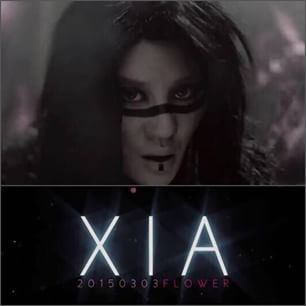
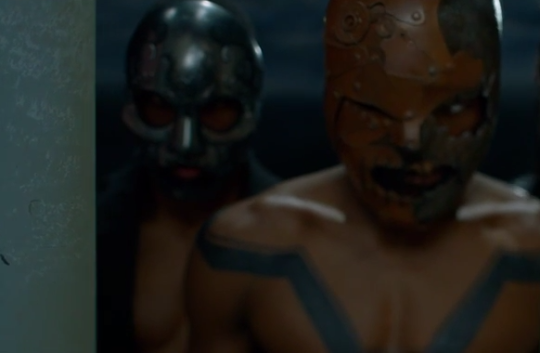
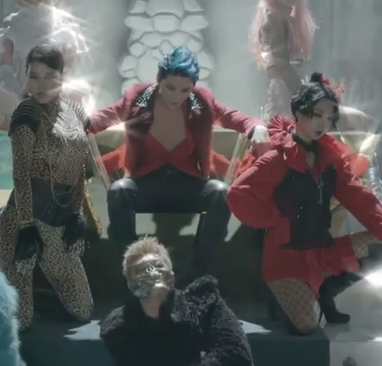
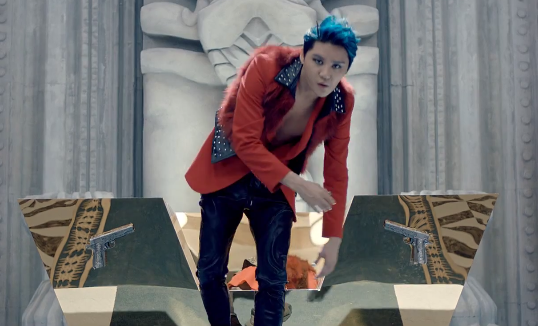
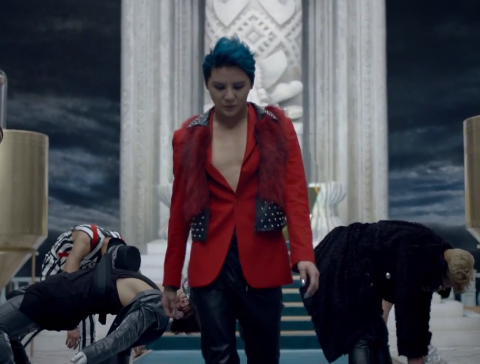
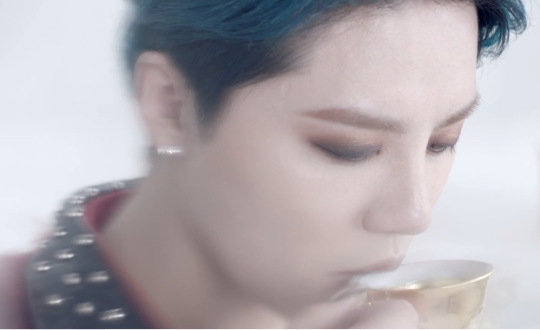
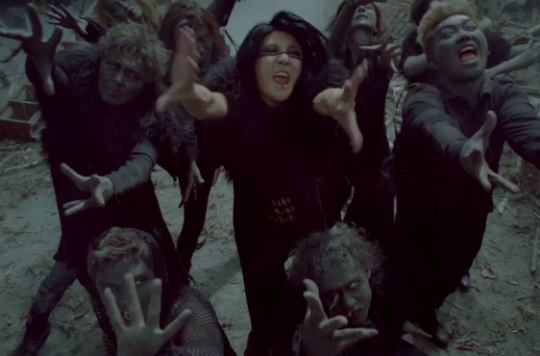
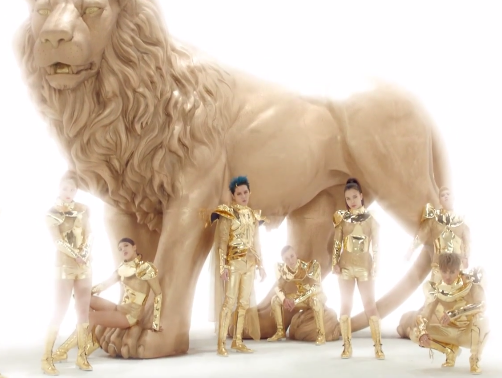
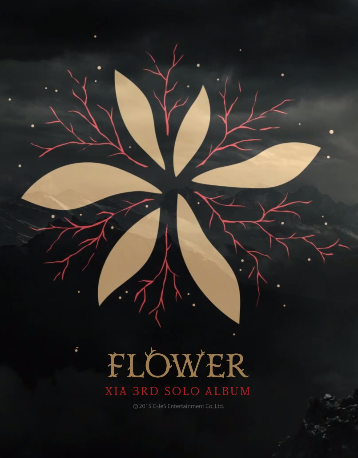
 RSS Feed
RSS Feed
